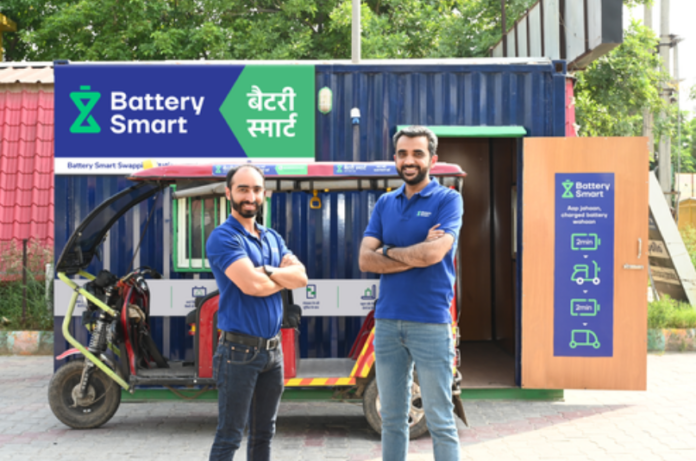New Delhi— Gurugram-based electric vehicle (EV) startup Battery Smart reported a steep rise in losses for FY24, with its net loss doubling to ₹140 crore from ₹61 crore in the previous fiscal year, despite a significant jump in revenue.
The company’s operating revenue surged 193% year-over-year to ₹164 crore, up from ₹56 crore in FY23, driven entirely by its core battery-as-a-service business for electric two- and three-wheelers. Including ₹23 crore from interest on financial assets, Battery Smart’s total income reached ₹187 crore, according to financials sourced by Entrackr.
However, expenses soared even faster. Total expenditure more than doubled to ₹327 crore from ₹125 crore the year before. Key cost drivers included a nearly fourfold increase in depreciation charges to ₹85 crore and a similar jump in finance costs to ₹45 crore. Employee benefit expenses also rose to ₹41 crore, though advertising costs were trimmed by 60% to ₹8 crore.
These mounting costs pushed the company’s Return on Capital Employed (ROCE) to -18.34% and its EBITDA margin to -5.35%. For every ₹1 earned in operating revenue, Battery Smart spent nearly ₹2 — underscoring the financial strain despite market growth.
As of March 2024, the startup held ₹328 crore in current assets, including ₹107 crore in cash and bank balances, providing it with some liquidity cushion.
Backed by marquee investors like Tiger Global and Blume Ventures, Battery Smart has raised approximately $192 million to date. Its co-founders, Pulkit Khurana and Siddharth Sikka, jointly hold a 28.5% equity stake.
While the company’s focus on battery swapping for two- and three-wheelers is seen as a strategic advantage—particularly in the high-demand three-wheeler market—it still faces competitive risks from larger automakers that may develop proprietary battery technologies or closed-loop charging networks.
Despite the challenges, analysts believe Battery Smart’s early lead and infrastructure-first approach could help it maintain a strong position in India’s evolving EV landscape. (Source: IANS)







